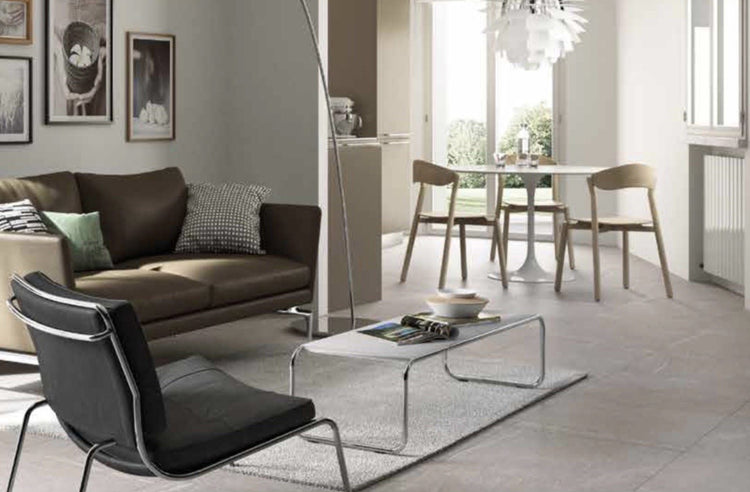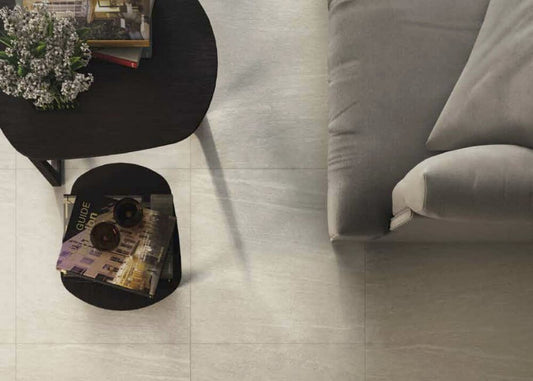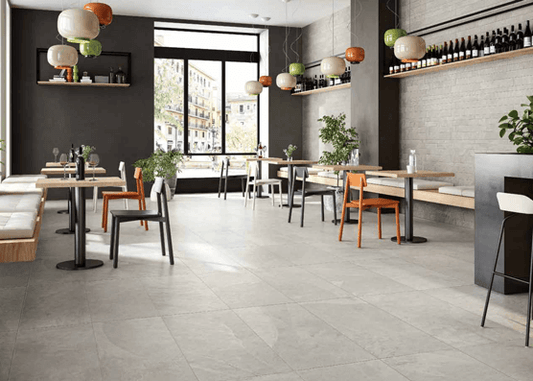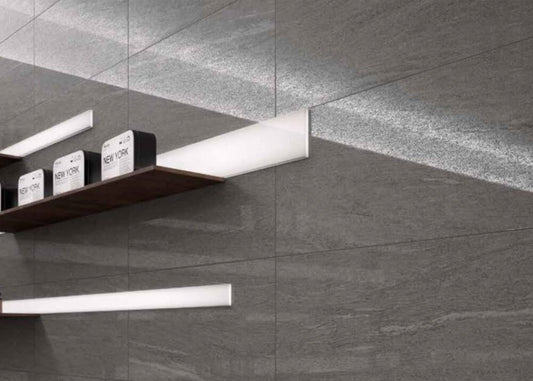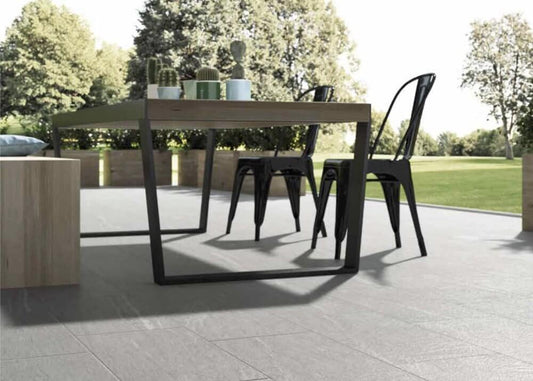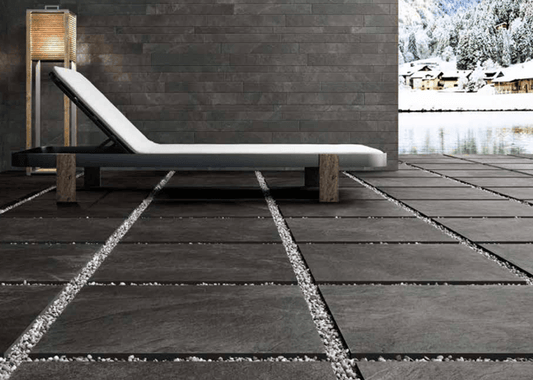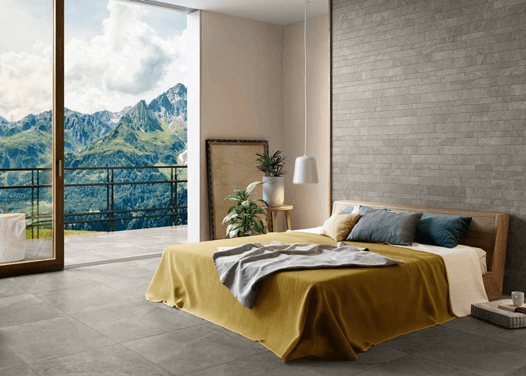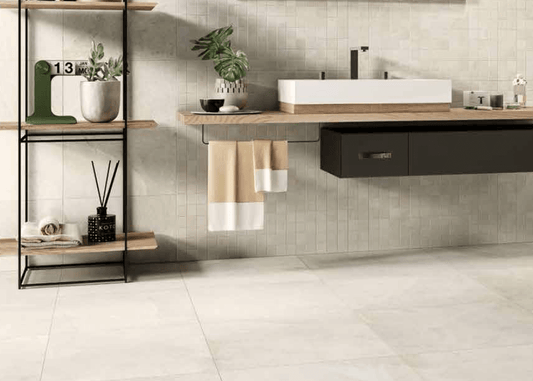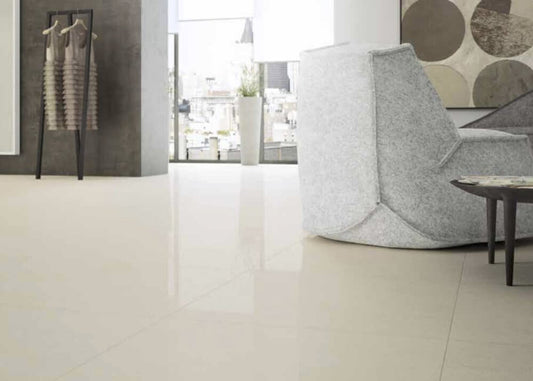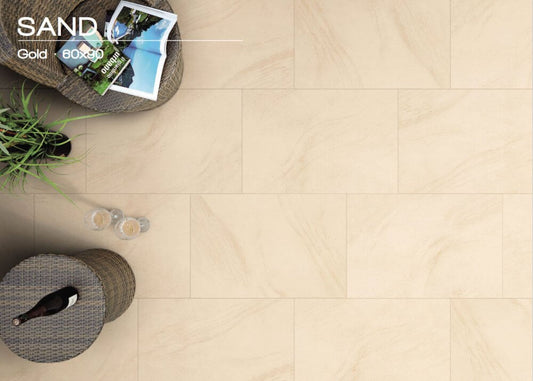Specially made porcelain paving — designed for both outdoors and indoors
Italian outdoor porcelain tiles are specially designed to emulate and look and feel just like real natural stone. And because porcelain is a synthetic material, it is deliberately manufactured to be durable and hard-wearing — and also to withstand the outdoor elements.
Some great advantages of porcelain external paving include:
- It’s non-porous — unlike natural stone, Italian porcelain outdoor tiles are near-impenetrable to moisture and water absorption. You won’t need to seal them or worry about staining. In fact, to keep them looking new, all they will need is a quick jetwashing every once in a while.
And because it is almost impossible for water to get into porcelain slabs, they’re much less likely to expand and crack on icy winter nights.
- They’re super durable — porcelain patio tiles are very tough to scratch and are highly resistant to salt, frost, and colonisation by moss, algae and lichens. Porcelain’s extreme durability will help to avoid marks or blemishes that could ruin the appearance of your floor. Making it the ideal material for areas with high levels of footfall, such as on pathways and patios.
- Slip-resistant — porcelain is anti-skid and slip-resistant. Making it a safe and ideal material for outdoor use and anywhere it is likely to get wet. Such as around swimming pools and in bathrooms and washrooms indoors.
- All the benefits of beautiful stone with minimal effort — porcelain garden tiles look and feel just like natural high-grade stone but they act more like tough concrete. They’re more affordable when compared to real stone, too. So if you’re struggling to pick between the two, porcelain is the obvious middle choice.
Learn about our indoor & outdoor porcelain paving slabs colours:
- Black/dark grey — Check out our Frame Groove, Sand Anthracite and Crest Smokey blends for an ultra-modern new patio or living room with a marble effect.
- Grey — Light & silver grey porcelain paving slabs are enduring popular and you'll love our Crest Silver, Frame River and Frame Peak tonal variations.
- White/cream — Brighten up your living space with any one of our lighter shade Frame Glen, Sand Gold, Crest Alpine and Crest Sand additions.
Porcelain paving merges tradition and contemporaneity for timeless beauty
Italian porcelain blends the natural beauty of stone with minimalist aesthetics and a refined elegance for a smooth and stylish finish — and we have a great variety of colours to suit any indoor or outdoor setting.
Porcelain looks the same all year round and offers great value for money. If you want a gorgeous paving, with minimal maintenance effort and at a more affordable price, then you might want to consider these Italian porcelain paving range. Get give us a call or write to us if you have any questions, we’ll be happy to help.
FAQs
1. Is porcelain paving expensive?
Not in comparison to other top-end stones. Porcelain paving is more expensive than concrete slabs and some of the cheapest types of stone on the market. But it is much cheaper when you compare it with the priciest stones.
Even if you find it a bit pricey, you’ll likely save on costs in the long run. Italian porcelain tiles are very low-maintenance and last for a long time. You can pretty much lay them and forget about them.
2. Does porcelain paving crack?
No. Porcelain is virtually impenetrable to water and should remain frost-resistant well below sub-zero temperatures. You can even put de-icing salt on garden porcelain tiles without it damaging them.
3. Do you have to seal porcelain paving?
No. Porcelain paving slabs don’t require any sealant at all. That’s because the porcelain material itself is non-porous, unlike natural stone. You won’t have to worry about water-based staining if you have a porcelain patio or decking.
4. Do porcelain pavers get hot in the sun?
Not really. Porcelain outdoor paving tiles might get hotter than concrete and some other types of stone, but most of the time you will be able to walk over it in your bare feet without it burning. Even on a sunny day in the middle of summer.
5. Are porcelain slabs harder to lay?
Yes. It is a little harder because porcelain has to be installed more like a tile, unlike a traditional paving slab. And although you could try laying porcelain paving tiles down on your own, we would recommend getting a specialist to do it.

